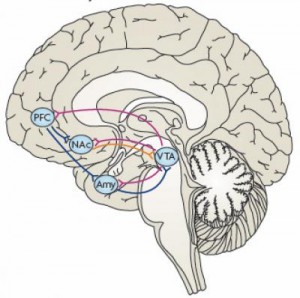Published: August 11, 2010
 A great piece in Slate from Alan E. Kazdin and Carlo Rotella
A great piece in Slate from Alan E. Kazdin and Carlo Rotella
You work and work to provide for your kids, and that puts you under a lot of stress. Job insecurity, maybe some mortgage problems, and other common afflictions of the times only increase the pressure. You find yourself taking it out on your family—the kids, your spouse, the cat, any unfortunate who gets in your way. When you’re home and not obsessively checking your e-mail, you lose your temper, you snap and yell and brood, you run alternately too hot (angry and aggressive, spoiling for a fight) and too cold (withdrawn and distant, a forbidding stone-face). You’ll admit that you’re hard to be around, but look, life is tough and you’re knocking yourself out without much in the way of thanks or respite to make enough money to feed and house the kids, and that’s what matters most, right? link to read more
Source: Slate
When people are under chronic stress, they tend to smoke, drink, use drugs and overeat to help cope with stress. These behaviors trigger a biological cascade that helps prevent depression, but they also contribute to a host of physical problems that eventually contribute to early death. [continue reading…]

The transcription factor deltaFosB mediates resilience in the nucleus accumbens, hub of the brain’s reward circuit. It is the target of an intensive high tech screening for small molecules that tweak it, which could lead to a new class of resilience-boosting antidepressants.
cientists have discovered a mechanism that helps to explain resilience to stress, vulnerability to depression and how antidepressants work. The new findings, in the reward circuit of mouse and human brains, have spurred a high tech dragnet for compounds that boost the action of a key gene regulator there, called deltaFosB.
A molecular main power switch – called a transcription factor – inside neurons, deltaFosB turns multiple genes on and off, triggering the production of proteins that perform a cell’s activities.
“We found that triggering deltaFosB in the reward circuit’s hub is both necessary and sufficient for resilience; it protects mice from developing a depression-like syndrome following chronic social stress,” explained Eric Nestler, M.D., of the Mount Sinai School of Medicine, who led the research team, which was funded by the National Institute of Mental Health (NIMH). [continue reading…]
Published: March 24, 2010
Marriage, marriage counselling, and eugenics! A Critic at large (New Yorker) discusses the legacy of Paul Popenoe, the father of marriage counseling, and reviews three recent books on marriage: The Husbands and Wives Club: A Year in the Life of a Couples Therapy Group by Laurie Abraham…(see Laurie in the video that I posted earlier today)
by Laurie Abraham…(see Laurie in the video that I posted earlier today)
Rebecca L. Davis observes in an astute, engaging, and disturbing history, More Perfect Unions: The American Search for Marital Bliss , the rise of couples counselling has both coincided with and contributed to a larger shift in American life: heightened expectations for marriage as a means of self-expression and personal fulfillment. That would seem to make for an endlessly exploitable clientele, especially given that there’s not much profit in pointing out that some things—like the unglamorous and blessed ordinariness of buttering the toast every morning for someone you’re terribly fond of—just don’t get any better. Not everything admits of improvement.
, the rise of couples counselling has both coincided with and contributed to a larger shift in American life: heightened expectations for marriage as a means of self-expression and personal fulfillment. That would seem to make for an endlessly exploitable clientele, especially given that there’s not much profit in pointing out that some things—like the unglamorous and blessed ordinariness of buttering the toast every morning for someone you’re terribly fond of—just don’t get any better. Not everything admits of improvement.
“Understanding the science of marriage gives us a crystal ball of sorts,” Tara Parker-Pope writes inFor Better: The Science of a Good Marriage . Did you know that the first three minutes of an argument are the most important? That “strong marriages have at least a five-to-one ratio of positive to negative interactions,” so that “for every mistake you make, you need to offer five more good moments, kind words, and loving gestures to keep your marriage in balance”?
. Did you know that the first three minutes of an argument are the most important? That “strong marriages have at least a five-to-one ratio of positive to negative interactions,” so that “for every mistake you make, you need to offer five more good moments, kind words, and loving gestures to keep your marriage in balance”?
😀 Enjoy!
Source: The New Yorker
 A great piece in Slate from Alan E. Kazdin and Carlo Rotella
A great piece in Slate from Alan E. Kazdin and Carlo Rotella
